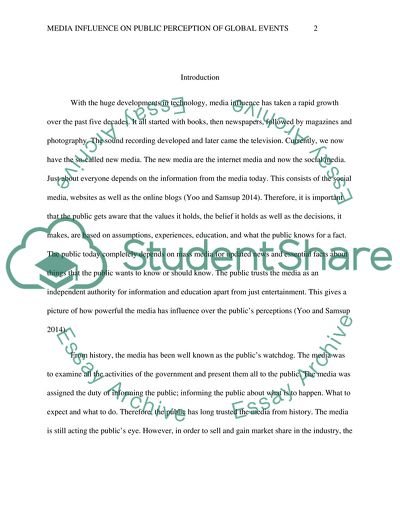Cite this document
(Media Influence on Public Perception of Global Events Term Paper - 2, n.d.)
Media Influence on Public Perception of Global Events Term Paper - 2. Retrieved from https://studentshare.org/media/1856809-to-what-extent-does-the-media-influence-the-public-perception-of-global-events
Media Influence on Public Perception of Global Events Term Paper - 2. Retrieved from https://studentshare.org/media/1856809-to-what-extent-does-the-media-influence-the-public-perception-of-global-events
(Media Influence on Public Perception of Global Events Term Paper - 2)
Media Influence on Public Perception of Global Events Term Paper - 2. https://studentshare.org/media/1856809-to-what-extent-does-the-media-influence-the-public-perception-of-global-events.
Media Influence on Public Perception of Global Events Term Paper - 2. https://studentshare.org/media/1856809-to-what-extent-does-the-media-influence-the-public-perception-of-global-events.
“Media Influence on Public Perception of Global Events Term Paper - 2”. https://studentshare.org/media/1856809-to-what-extent-does-the-media-influence-the-public-perception-of-global-events.


